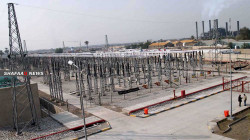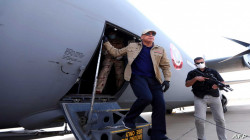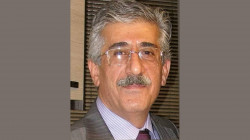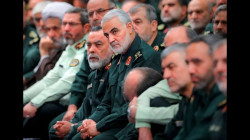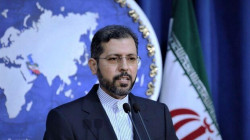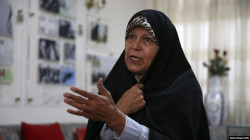Undercover cameraman documents life in Tehran for Israeli TV
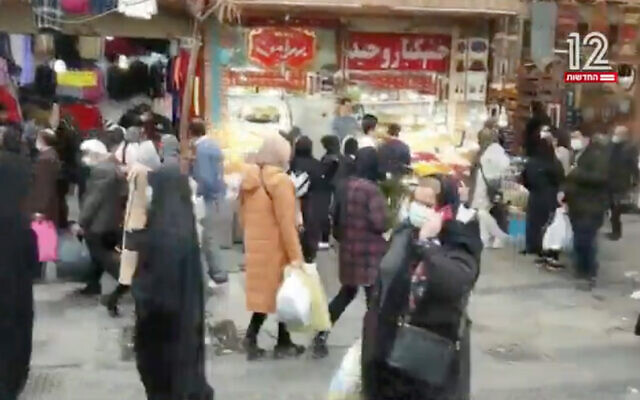
Shafaq News/ Israeli TV broadcast the first episode of what it said it is a series of reports filmed by an "Iranian dissident" from Tehran, "depicting the country’s cratering economy, frustrated residents, drug abuse, and prostitution", according to the Times of Israel.
Channel 12 said the first report in the series, broadcast on Sunday, marked the first time cameras working for Israeli television had operated in Iran since the ayatollahs took power in 1979.
The dissident said he took the risk of walking around the capital Tehran with the camera, usually hidden, to document daily life, out of a feeling of “revenge” against the regime.
His identity was kept secret for his safety, and the people he interviewed had their faces blurred and voices disguised to prevent identification.
“To our sorrow, we don’t have independence here, there’s no freedom, no democracy and no normal life. There is dictatorship, theft and crime. I know what I’m doing, and it’s definitely very dangerous,” the cameraman said.
“I know the consequences of my actions. You have to stand and fight, and not give up. I hope that soon Iran will be freed from the dictators,” he said.
The average Iranian’s main daily concern is cost of living, the report said. International sanctions over Iran’s nuclear program and government policies have caused soaring inflation.
The cameraman visited one of Tehran’s main shopping areas to gauge public sentiment in the crowded alleys packed with shoppers and storefronts.
A shopkeeper told him a set of dishes he sold for 6 million rials four years ago now costs 40 million ($960).
“The situation has changed a lot. The prices are already getting into the millions and billions. What can I do with my salary? Maximum, I can afford rent, water, electricity, pay for my two kids and transportation. I can’t do more,” one Tehran resident said.
Several people blamed the Iranian regime for the skyrocketing prices.
“A satisfied belly cannot understand a hungry one. The leaders live well in their ivory towers, but we here are the living dead. A person dies once and gets buried, but we are dying every day here,” another resident said.
Traffic and air pollution are other leading concerns for most Tehran residents, the report said.
The cameraman visited Tehran’s more wealthy, northern area, filming its manicured parks and monuments. It is more secular and easygoing, and less supportive of the regime.
The government’s religious edicts were not strictly enforced — some women did not wear hijabs, or did not wear them properly, and if asked, will tell police they fell off, the report said.
Street performers play music they are not supposed to play, and the children of wealthy Iranians hold parties by paying off local police, the report said.
The regime tolerates some rule-breaking on a small, personal scale, but steps in if anything is more widespread and organized.
Tehran’s subway system appeared well-maintained and modern and is reportedly used by millions every day to access most areas of the city, the video showed. The sprawling metropolis has some 8.7 million people.
The south of the city is more conservative, religious and poor, and more supportive of the regime, the report said.
In southern Tehran, in empty lots, the cameraman encountered homeless Iranians huddled outdoors underneath blankets.
“I have nowhere else to go. I can’t get any work,” one said. “The problem in this country is that there are no leaders.”
At night, the area was crowded with drug users sitting on the sidewalk, huddled over small fires.
“When I see young people that don’t have anywhere to go out, or to enjoy themselves, they go to smoke drugs to become happy. It’s all because of poverty, because of unemployment and because of boredom,” one resident told the cameraman.
Another resident said that on one of Tehran’s “drug streets,” there were 2,000 to 3,000 users at a time.
“No one’s coming to tell them anything, but if you dare to drink a cup of alcohol and go out on the street, they catch you, put you in prison and beat you,” he said.
An Israeli expert commenting on the footage in the report said the use of opium is widespread, and other people used methamphetamine and heroin.
Another expert said heroin is sometimes easier to find and cheaper than other drugs, and that many women become addicted because their lives are more difficult than men.
The cameraman encountered prostitutes near the “drug streets” who offered themselves to passing drivers for around $15.
One prostitute said, “My mother and father, both were addicted to drugs, and also my siblings. There’s no work in this country. Where can you find work?”
“And at the end, when you find work, they want to sexually exploit you. Everyone wants to exploit you in Iran so I decided to choose [prostitution],” she said.
“All the leaders, everyone comes, talks, and at the end steal from us. If I didn’t work like this, I would starve to death,” she said.
Sunday’s report was the first in a series, Channel 12 said.
